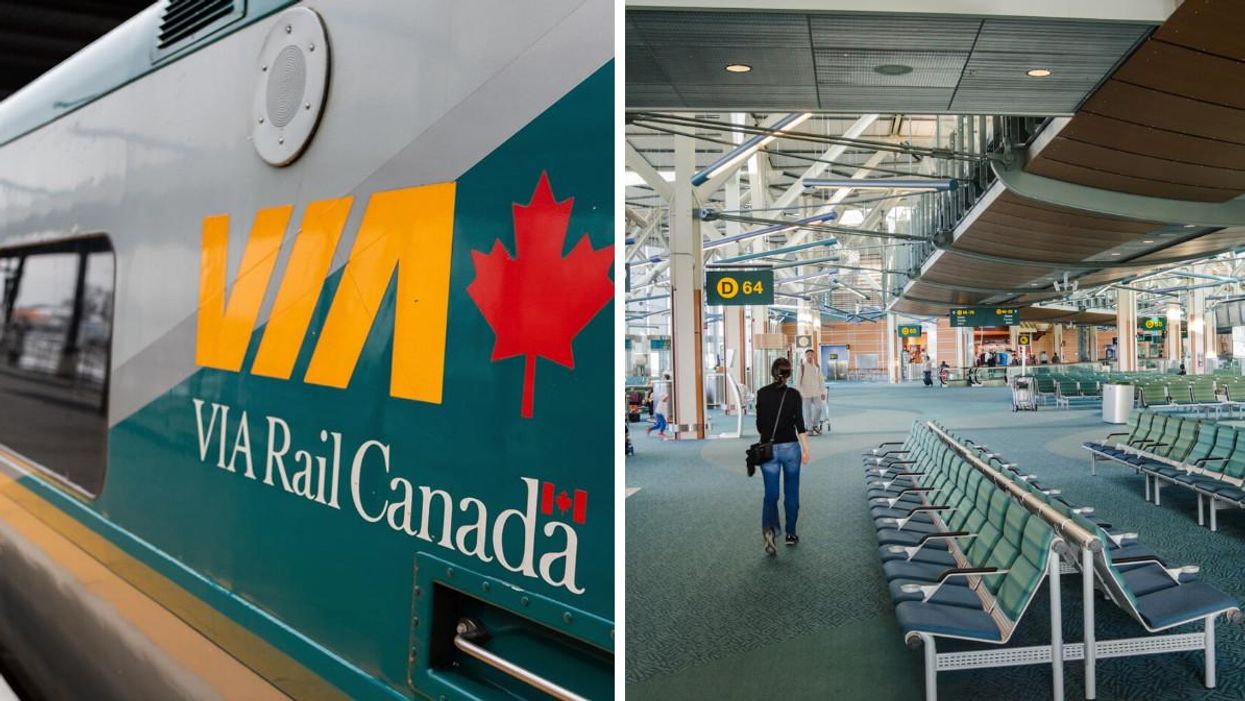Canada Has New Vaccine Rules For Domestic Travel & Here's Everything You Need To Know
Negative COVID-19 test results will not be accepted as an alternative after November 30.👇✈️
The Government of Canada has laid out its plan to implement a COVID-19 vaccine mandate for domestic travel in Canada, which will impact anybody hoping to board a train or plane this winter.
Speaking to reporters on Wednesday, federal officials announced that domestic travellers aged 12 and up must be fully vaccinated in order to catch a flight or use VIA Rail or Rocky Mountaineer services.
Passengers will be permitted to show proof of a valid negative COVID-19 molecular test (rather than proof of vaccination) until November 30. After this date, negative test results will not be accepted as an alternative.
So, why is there a mandate?
Prime Minister Justin Trudeau reiterated that Canada has enough COVID-19 vaccine doses for everybody to be fully vaccinated. He said that doing so would allow the country to "finish the fight against COVID-19."
The PM went on to say that Canadians who've already been vaccinated "deserve the freedom to be safe from COVID-19" and "to get back to the things you love."
It's a message that was backed up by Transport Minister Omar Alghabra, who said, "Requiring travellers and employees to be vaccinated ensures that everyone who travels and works in the transportation industry will better protect each other and keep Canadians safe."
It means those who haven't yet received a full course of a COVID-19 vaccine will have to do so in order to travel on federally regulated public transport or work for the federal government.
Where will this apply?
From October 30, the mandatory vaccine mandate will apply at all Canadian airports and will impact passengers taking both domestic and international flights. It will also be implemented on VIA Rail and Rocky Mountaineer trains "with very limited exceptions."
The government says it is also working with "key partners" to implement a strict vaccine requirement for cruise ships too, ahead of the 2022 season.
Who does it affect?
"For the vast, vast majority of people, the rules are very simple. To travel, you've got to be vaccinated," Trudeau said on Wednesday.
Unless a traveller has a valid reason for exemption, it will apply to all passengers aged 12 and above.
Employees working on all of these services will also be required to get fully vaccinated. If they refuse, they will face consequences like restricted access to the workplace and administrative leave without pay.
Who may be exempt?
Justin Trudeau has already confirmed that there will be limited exceptions for both federal employees and domestic travellers.
"Exemptions, whether they're medical exemptions or otherwise, will be exceedingly narrow, specific and, to be honest, somewhat onerous to obtain," he told reporters on Wednesday. "Simply having a personal conviction that vaccines are bad will not be nearly enough to qualify for an exemption."
That said, the government acknowledged in a release that some people may be unable to be vaccinated on medical or religious grounds. These individuals "may request accommodation."
The feds say there will be "limited exceptions" for travellers to address the realities of remote communities and emergency travel, too.
It warns that there will be penalties for any travellers caught falsifying documents, as well as for transportation operators who don't comply with the mandate.
Health Canada has a robust website with all the latest information on COVID-19 vaccines and can answer any questions you may have.
This article's cover image was used for illustrative purposes only.
- Canada Has Laid Out The 'Consequences' For Federal Employees ... ›
- COVID-19 Vaccines Will Be Mandatory For Federal Workers In ... ›
- Mandatory Vaccination For Domestic Travel In Canada Is Coming ... ›
- Canada's Travel Restrictions Just Changed Once Again & Here's Everything You Need To Know - Narcity ›
